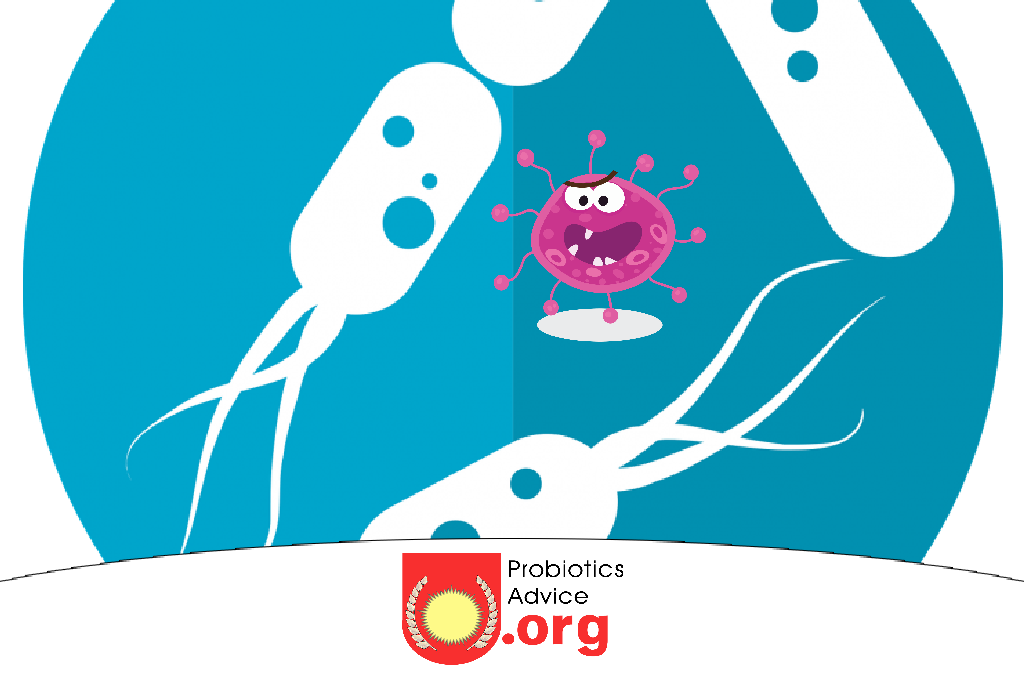Probiotics for Menopause:
Probiotics’ role and their exact mechanism for promoting human health are being investigated. However, there is an increasing amount of evidence proving the positive effects they have on women who are experiencing symptoms of menopausal.
Half of the women over 50 are prone to breaking a bone due to osteoporosis. Women are more vulnerable during the menopausal transition due to the absence of estrogen. It’s one of the most gruesome and widespread ailments associated with this phase of life for women, generally affecting their health and quality of life. Research indicates that menopausal hormones accelerate the loss of bone to 5% every year.
Compared to premenopausal females, postmenopausal women are more likely to suffer from increased total fat levels and less weight loss. Obesity affects more than six out of 10 women who are postmenopausal and is linked to metabolic disorders, an increase in the likelihood of having insulin resistance, and type 2 diabetes.
In addition to monitoring our diets and developing an exercise routine that is regularly followed, In recent times, it has been thought that the microbiome may be a factor in menopausal weight control.

Related, The Top 5 Best Chewable Probiotics for Women & Men
Researchers have suggested that the relationship between gut microbiota and an absence of oestrogen is likely at the root of weight increase and deposition of lipids during the menopausal transition.
The exact nature of this connection isn’t yet comprehended. However, many studies have shown positive results of the lactobacillus group of bacteria in menopausal weight growth.
During menopause, women are more likely to suffer from fatigue, depression, hair loss and weight gain. The change in the intestinal microbiome is one of the reasons for these changes. Probiotics’ role in alleviating symptoms during menopausal transition has been studied extensively since 2013.
The probiotic strain Bifidobacterium bifidum has proven beneficial in premenopausal tests performed by researchers at Texas Tech University’s Health Sciences Center School of Medicine. This particular bacterial strain reduced triglycerides levels and decreased high blood pressure among women who were experiencing symptoms related to menopause.
Related, The Top Probiotic Strains (Benefits & Side Effects)
Other studies carried out over the years have shown that taking Lactobacillus rhamnosus could reverse bone mineral density loss after menopause.
Lactobacillus reuteri has also proved beneficial in postmenopausal women in numerous studies, and it’s widely accepted as a therapeutic strategy for alleviating menopausal symptoms.
Lactobacillus Plantarum was effective among premenopausal women by reducing anxiety and depression levels, combating weight gain and improving bone mineral density.
The most recent 2018 study on this matter revealed that Lactobacillus fermentum could decrease depressive symptoms during perimenopause and menopause when given daily over 12 weeks. The researchers noted that the probiotic enhances GABA activity in brain regions associated with mood changes and stress management when taken orally. Olav Zylstra from the University of Western Ontario’s Schulich School of Medicine & Dentistry said that the study is an essential step in determining how probiotics can be helpful to women dealing with perimenopause and menopause.
As mentioned before, there are still many things that are yet to be discovered about this process. However, considering that there’s a direct link between the microbiome and our hormone levels, it is clear that one can have a considerable effect on the other. The microbiome is directly connected with our immune system and our liver function. The more we understand it, the better health decisions we can make.
Please share this article if you find it interesting and helpful! If these studies help someone who is going through menopause and feels awful, don’t hesitate to reach out or leave a comment. We would like to know your thoughts!
As always, Stay Curious & May the Probiotics Be With You!
References:
https://www.sciencedirect.com/topics/agricultural-and-biological-sciences/lactobacillus-plantarum
https://www.ncbi.nlm.nih.gov/pmc/articles/PMC5433529/
Can probiotics help menopausal Bloating?
Most women who are menopausal have experienced an aching stomach that is crippling and eye-watering abdominal pains, and an unanswerable bloating. Digestive disorders are a typical sign of menopausal symptoms.
There isn’t a large amount of research examining the connection between menopausal bloating as well as probiotics. However, substantial evidence suggests that these supplements may help alleviate general IBS symptoms, such as abdominal pain, bloating, and flatulence.
One of the most distressing results of menopausal hormones is dryness of the vagina
and the thinning of the vaginal wall, which can both combine to make the experience of intercourse uncomfortable. The newer term GSM, which stands for genitourinary Syndrome of menopausal symptoms (GSM), describes a collection of symptoms that include burning, dryness, irritation, a lack of adequate lubrication to allow for sexual intimacy and pain, urgency in the urinary tract.
A controlled clinical study of 60 postmenopausal women with symptoms of menopausal Genitourinary Syndrome tested hormone therapy with and without probiotics. They were treated with isoflavones and probiotics ( Lactobacillus acidophilus, Lactobacillus casei, Lactococcus lactis Bifidobacterium bifidum along with Bifidobacterium lactis) or allopathic hormone therapy for 16 weeks. The results revealed that probiotics increased the metabolism of isoflavones.
The vagina is home to its own microbiota, which is distinct and distinct from gut microbiota as well as the microbiota on the skin. In peri- and postmenopausal women, the vagina is also affected by the hormonal cycle of this stage of life.
Conclusion:
As we age, our bones become weaker and more susceptible to breakage. Women are at an increased risk for osteoporosis due to the absence of estrogen during menopausal transition, which accelerates bone loss.
Bone health is vitally important in women over 50 years old as they may be prone to breaking a bone or suffer from other conditions related with their bones such as arthritis.
It’s crucial that you take steps now to prevent any future problems by getting regular physical activity, eating calcium-rich foods like dairy products and dark leafy greens, taking supplements if necessary (consult your doctor), and wearing supportive shoes that will help stabilize your spine so it can better absorb impacts on your feet when walking or running.
What can we do to preserve our microbiome? For starters, think about the foods you’re eating. If your diet consists of more vegetables and less processed food full of artificial ingredients or sugar, then chances are that’s a good start for preserving gut bacteria.
Drinking water is also important as it helps flush out toxins in the body. But don’t forget about exercise!
A healthy lifestyle consisting of plenty of physical activity has been shown to reduce levels on inflammation throughout the body which improves overall health not only by reducing stress but also improving immune function.
It may be time to update your New Year’s resolutions with new goals like “get healthier” instead-and this includes taking care of one small part below our feet

